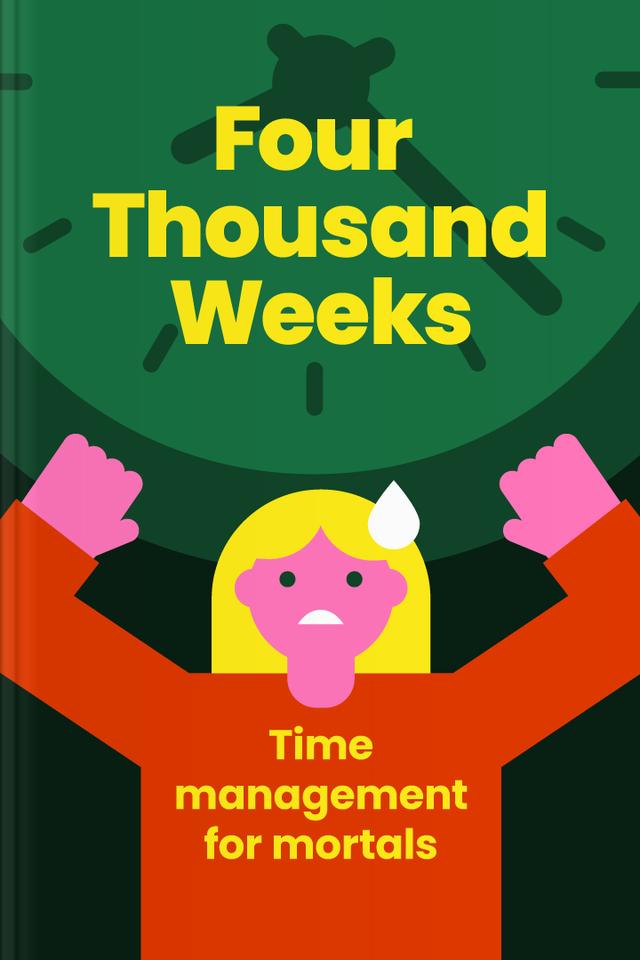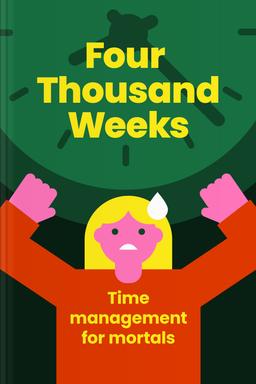You’ll learn
- How to cherish fleeting moments
- Why less work can mean more joy
- How to embrace life’s limits
- Ways distractions can help you
Protect the world’s peace. Donate to support Ukraine

first KEY POINT
The human lifespan is somewhat short, and the average length of time for most people is a little over 4,000 weeks. Time is one of our most valuable commodities, yet the notion that we should be more productive, more efficient, or devote our time to something else haunts many of us today.
There is little chance that we will be able to spend all of our 4000 weeks of life doing exactly what we desire. The world prioritizes productivity over everything else, including our happiness. Although there’s nothing wrong with trying to make a living or a name for ourselves, we have placed too much emphasis on maximizing our time that we burden ourselves with unnecessary expectations.Believing that we have to be special beings in a unique world is why many of us lose sight of living a normal life without feeling bad about it. Since we are obsessed with accumulating wealth and notoriety, people have found it difficult to appreciate the almost 4,000 weeks we have left on this planet. We spend our free time doing constructive things like thinking or working instead of relaxing and enjoying life. In this summary, we'll discover fresh views on time and how to manage it more effectively, thus challenging the status quo and encouraging us to embrace the beauty of change.
second KEY POINT
Our current mindset about time is so ingrained in us that it might be challenging to remember that there was once a period when it was not always like this. We have come to conceive time as something that functions independently of us since the creation of clocks, so we feel bad if we don't spend our time on activities that we find significant.Before the invention of clocks, time was just the channel through which existence unfolded. Workers used to get up with the sun and go to bed at nightfall, with the length of their days shifting with the seasons; there was no need to imagine time as something different from existence. When time and life got separated, time became a thing we employed. This transition is accountable for our contemporary challenges and fears over time.

Continue reading with Headway app
Continue readingfirst KEY POINT
second KEY POINT
third KEY POINT
fourth KEY POINT
fifth KEY POINT